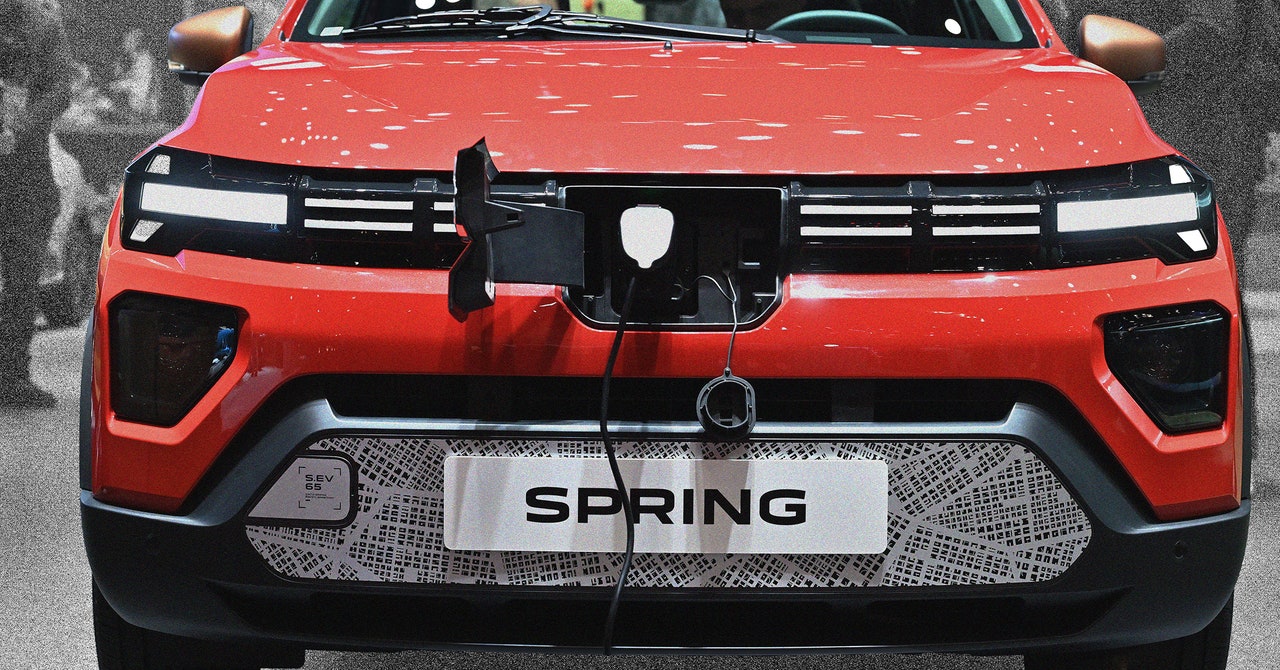Europe Votes to Slap China-Made EVs With Tariffs—but Tesla Gets Off Easy Leave a comment
“I feel you may envision this taking part in out fairly nicely for BYD, really,” says Ilaria Mazzocco, a senior fellow on the Heart for Strategic and Worldwide Research. “And likewise, they will have much less competitors from different Chinese language automakers.” BYD is understood for its means to control production costs, so it could nonetheless promote its vehicles at a comparatively low value. For different Chinese language manufacturers, although, the tariffs might imply they now need to set their costs greater and compete head-on with fashions from Europe.
Chinese language automakers should not the one ones being impacted. Tesla, with half of its vehicles made within the Shanghai Gigafactory in China, will obtain the smallest tariff at 7.8 p.c after the corporate requested an adjustment primarily based on the precise subsidies it will get in China. In distinction, Volkswagen and different European manufacturers that produce vehicles in China could get round 21 p.c.
A technique for Chinese language manufacturers to get across the tariffs is to arrange factories in Europe and shift manufacturing right here, like what Volvo has finished for years producing in Sweden though it’s been acquired by the Chinese language firm Geely.
Such selections could be welcomed by some European nations, since that might in idea contribute considerably to native employment and inexperienced financial progress. Certainly, many Chinese language firms have introduced plans to maneuver a part of their provide chain to nations similar to Spain, Hungary, and Poland, though Mazzocco warns these bulletins needs to be taken with a grain of salt till factories really begin manufacturing.
Different Options
But regardless of the vote outcome, the accepted tariffs might not be ultimate. On Monday, a European Fee official mentioned that the fee is keen to proceed the negotiations with China even after the tariff vote. In the event that they handle to agree on different options to the difficulty of unfair competitors—for instance, establishing import quotas or a value flooring for Chinese language EVs—the tariff might be revised.
China has filed a complaint to the World Commerce Group concerning the EU tariffs, and the WTO might additionally request the EU to alter or withdraw these tariffs if it finds them unacceptable.
“What the fee actually desires to do is to inform the members, ‘Look, we have to look critical right here. We are able to negotiate later,’” says Alicia García-Herrero, chief economist for Asia Pacific at French funding financial institution Natixis. If member states had rejected the fee’s proposed tariffs, it might’ve proven that Europe is split and powerless dealing with the inflow of Chinese language manufacturers. However now that the tariffs have handed, Europe has extra leverage in negotiating a greater commerce take care of China.
Not all the various outcomes would impression Chinese language firms the identical. For instance, the worst state of affairs might be an import quota, says García-Herrero. Turning a revenue with the tariffs is difficult, however nonetheless potential. “However a quota would cut back the variety of exports, so it isn’t in China’s pursuits,” she says.
Alternatively, setting a value flooring for the imported EVs alone might not be a nasty factor in any case. It provides the automakers a better revenue margin and forces them to compete on the premise of higher high quality and repair. “I feel Chinese language automakers really feel fairly assured about their high quality,” Mazzocco says. And it could even be excellent news for the Chinese language EV manufacturers which are specializing in the higher-end, luxurious automobile market, like BYD’s sub-brand Yangwang, which is making luxurious SUVs that may drive throughout lakes in emergencies.

